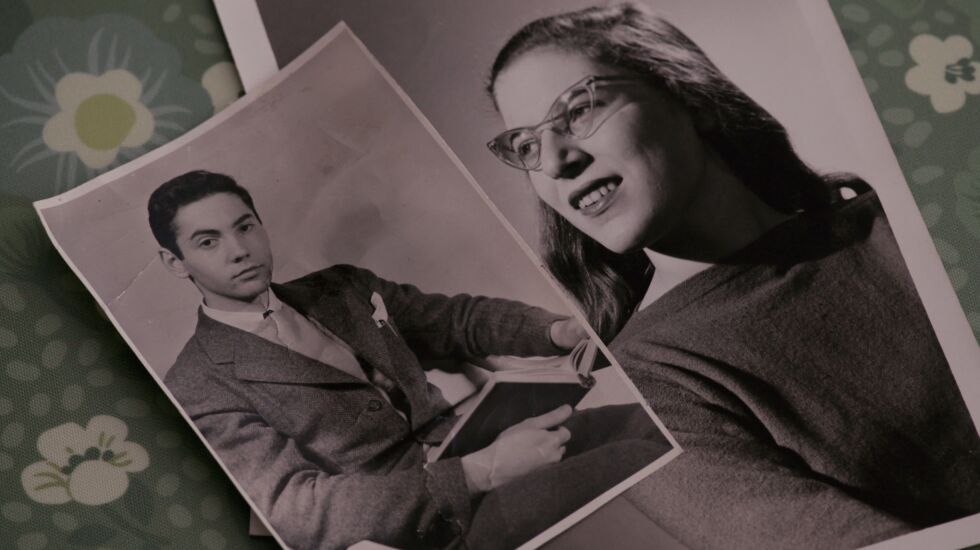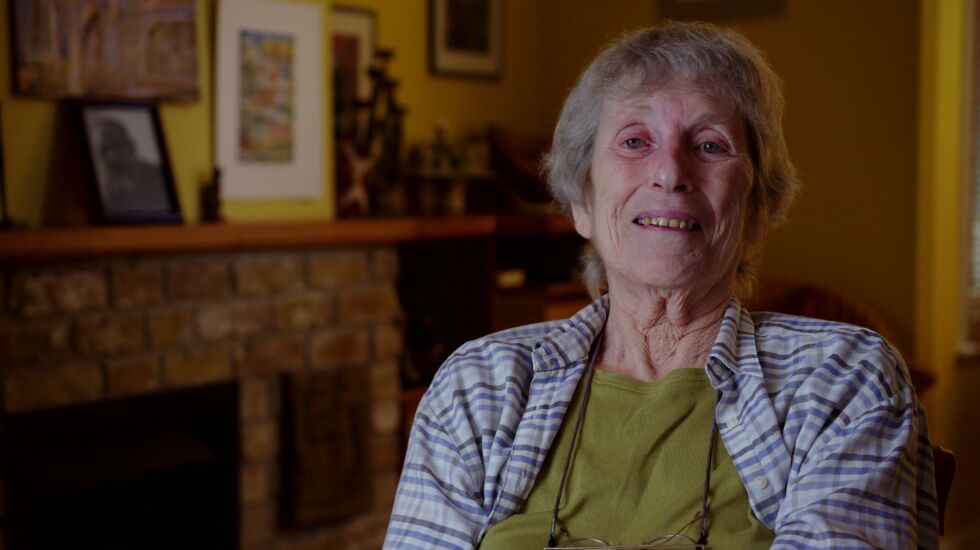
When we see hundreds of scientists and engineers convening at Los Alamos for the Manhattan Project in Christopher Nolan’s “Oppenheimer,” one can’t help but think there are many among them whose stories might not be as world-shaking as Oppenheimer’s, yet were no doubt worthy of their own movie.
Example: one Ted Hall, the subject of “A Compassionate Spy,” the latest documentary from the prolific and versatile Steve James (“Hoop Dreams,” “The Interrupters,” “Life Itself”), and even if you don’t know Hall’s story, that title tells you where we’re going.
Hall was a senior at Harvard and was just 18 years old when he joined the Manhattan Project, making him the youngest physicist on the team. He was a quiet, thoughtful and politically passionate genius who retreated to his dormitory bed and listened to music as the residents of Los Alamos threw parties to toast the successful test of the atomic bomb,. He didn’t see cause for celebration; he foresaw a future in which the United States of America would be the only nation in the world with nuclear weapons and would wield that awesome power to dominate the planet.
With that in mind, Ted Hall decided the only way to mitigate the danger was to ensure the Soviet Union had the intel to build an atomic bomb, and he began passing vital information to the Soviets that advanced their efforts a half-decade, according to one of Hall’s biographers. “In my mind this was a question of protecting the Soviet people as well as our people … preventing an overall Holocaust which affect the entire world…” says Hall (who passed away in 1999) in a 1998 recording made by his wife, Joan, at their home in Cambridge.
James relies heavily on that recording and on interviews with his Chicago-born widow, Joan, who died last April at the age of 94. He also employs the effective technique of re-creating scenes from the 1940s and 1950s by having actors portray Ted and Joan in desaturated colors. Indeed, “A Compassionate Spy” is as much about the decades-long unbreakable bond between Ted and Joan as it is about the complex and shifting political landscape that precipitated Ted becoming a traitor to his country and/or a crusading hero who helped stave off a nuclear war, depending on your beliefs. (It’s possible to hold both beliefs.)
Joan Hall has a kind of Katharine Hepburn-esque style and manner as she recounts meeting and quickly falling in love with Ted when they were students at the University of Chicago in 1947. (We’re also introduced to Saville “Savy” Sax, who was kind of a third wheel in the relationship, had been Ted’s roommate at Harvard and had acted as a courier to move atomic secrets to the Soviets.)

After Ted proposed to Joan, he told her about giving information to the Soviets and they agreed they would never discuss the matter with anyone, ever. Still, the feds were often following them, bugging their phones, bringing Ted in for questioning, but they were never able to prove anything. (At one point in the early 1950s, says Joan, they gathered up anything in their house that would tie them to the Communist Party, any documents that might incriminate Ted, and dumped them in the Chicago Drainage Canal in the middle of the night.)
We see the actors portraying Ted and Joan driving past the off-ramp to the Sing-Sing Correctional Facility in New York State right around the time Julius and Ethel Rosenberg were to be executed for spying. Their faces are struck with terror, knowing this could have been them. (The authors of “Bombshell,” the 1997 book about Ted Hall, claim the information he provided to the Soviets was far more important than anything the Rosenbergs leaked.)
As the title indicates, “A Compassionate Spy” is extremely favorable to Ted Hall, almost to a fault. We’re reminded that there was a dramatic shift in the American government’s position on the Soviet Union, from sympathetic public proclamations during World War II to the Cold War anti-communist stance that took hold in the 1950s. Hall’s concerns about a U.S. nuclear strike against the Soviets were legitimate, but he and Joan come across as terribly naïve about the brutality of Stalin’s regime and the true state of life in the Soviet Union. (In an interview, Ted Hall admits to seeing the world for a time through “pinkishly colored glasses.”)
Ted Hall did pioneering work in X-ray microanalysis and other research at the University of Chicago, Memorial Sloan-Kettering in New York and Cambridge. The film leaves no doubt Ted Hall was a brilliant man, and that he and Joan had a beautiful marriage. His legacy beyond that remains a subject of intense debate.







